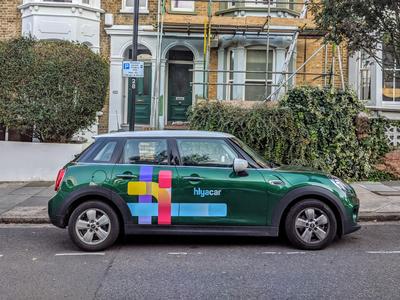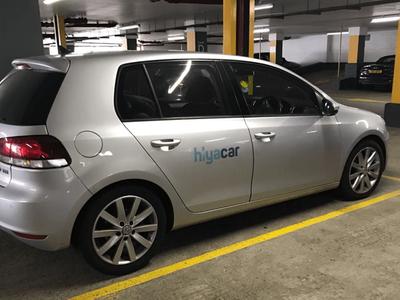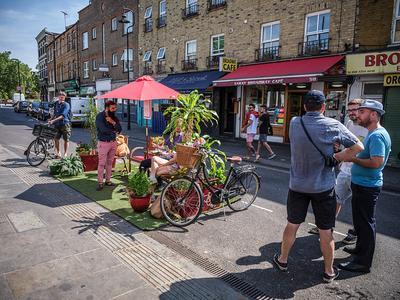
Uber vs. Car Rental
Uber has become a more and more popular transport option for Londoners since its launch in July 2012. It has replaced black cabs to a large extend, with over 3M people regularly using the hailing app. It has been reported that 25,000 traditional cab drivers have suffered lost earnings of £10,000 a year. But, has Uber also affected or replaced car rental usage? In my opinion both solutions complement each other; not surprisingly, Uber announced a partnership in the States with American peer to peer car rental platform GetAround, so Uber users could easily hire GetAround cars.
I thought it would be useful to analyse in an article the advantages and disadvantages of both Uber and car rental as transport solutions –and within the car rental category, distinguishing between traditional car hire and the emerging peer to peer car hire.
Uber
Advantages
- Great option for short trips, even more if you don’t drive at all. Uber is quick and affordable for short trips, assuming that you don’t get stuck in traffic jam. For those that don’t have a driving licence or don’t feel comfortable enough to drive in a city like London, Uber is a convenient solution: someone simply takes you to where you need to go.
- On demand. As soon as you open the Uber app you see where the different drivers are, in real time; you can easily book one and they tend to turn up at the pick-up point in just a few minutes. You can see the driver’s profile and their reviews from previous jobs.
- Hassle free. You don’t really need to do much to become an Uber passenger. A smartphone and a payment card are all that is required. Uber became world famous for disrupting the taxi industry in hundreds of cities around the world, providing a significantly better user experience for customers, cashless and more transparent.
Disadvantages
- Expensive for long trips. At a price of around £1.25 per mile, costs will go through the roof very quickly if you use Uber for long journeys. Car rental will always be a more affordable choice.
- Prices increase at peak time. Whilst Uber is generally cheaper that black cabs, it’s not the case at peak times or in peak areas. Likewise, any major events or disruptions in the city can result in ‘surge pricing’: depending on the intensity of demand, prices are increased by a certain percentage. At times they could even be doubled or tripled. This might mean that the fixed cost of a car rental is the way to go. Even black cabs can be a more viable option in these situations, as they have the advantage of using bus lanes, reducing journey times and costs.
- Not that great if you don’t know your exact destination, or if you have multiple stops at destination. If you plan to do more than 3 trips a day, then the cost of getting an Uber every time will probably work out higher than if you had rented a car for your own.
- Walkability at destination. If you think that you will be able to get around on foot once you arrive at your destination, Uber should be okay. If not, again car rental might be a more flexible choice.
Car rental (including peer to peer car hire)
Advantages
- Freedom. Both traditional car hires and peer to peer platforms give you access to a car when you need one. During the time of the hire, you can travel around as if you owned that car: you have absolute freedom. Whilst traditional car clubs like Zipcar tend to have a tight mileage allowance (around 30 miles), peer to peer services like Hiyacar are more generous in this aspect (around 300 miles included in the cost of the rental).
- Very competitive if you’re making several trips in a day or within a few hours, also for weekends and long journeys. If you’re doing some errands, attending to multiple business meetings, visiting family outside London, going away for the weekend with your partner, etc., you’re likely to be better off renting out a car rather than getting an Uber for each single trip.
- Almost hassle free. Traditional car hire is well known for its paperwork and annoying sales techniques to push customers into buying extras or car insurance that they don’t need. Not to mention the anxiety about returning the car you hired, fearing that they might blame you for scratches that weren’t your fault. Peer to peer car hire services such as Hiyacar remove these hurdles by having a tech platform that processes the driver’s verification in a few simple steps, and by adding an essential community element. Car owners and drivers rate each other based on a number of factors (car condition, cleanliness, communications, etc.), so you know what you’re getting into, and you deal with another member just like you.
- Deposit… Car rental companies almost always require a deposit from drivers. The same is also true for peer to peer providers. A £300 or £500 deposit is for sure a considerable barrier for many people to even consider renting a car. Nevertheless, and that’s why I’ve added this point as an advantage, Hiyacar doesn’t require a deposit of any kind to hire a car. That’s a winner!
- Fixed price. Car rental prices don’t vary during the day, and tend to stay fairly stable throughout the year, so there shouldn’t be any surprises on this front.
- On demand (for some cars). Traditional car rental companies are certainly not on demand. However, peer to peer platforms are adding vehicles with technology that makes them immediately available. For example, part of Hiyacar’s fleet is equipped with QuickStart, which allows drivers to unlock and lock vehicles by using an app, so the need of doing a physical key handover disappears. Some of these cars are available on ‘Instant book’, that is, the car owner will automatically accept any booking requests that are made by drivers.
Disadvantages
- Parking costs and driving penalties. When you rent a car, of course you’ll have to pay for any associated parking costs. If you’re visiting a friend or family that can give you access to a free parking space this shouldn’t be a problem, but if you are going to spend a while in the city, this additional cost is something to consider. Equally, as a driver you’d be exposed to PCNs.
- Not adequate for short, single trips. Uber or even public transport are going to be more cost and time effective if say you’re making a one-way 2 or 3 mile journey.
I hope these lines have added some clarity around when it’s best to use Uber or rent a car. As I said at the beginning, both are complementary and should form part of the ‘transport suite’ of any smart traveller in London.
Happy travels!
Cover image by David Holt.











